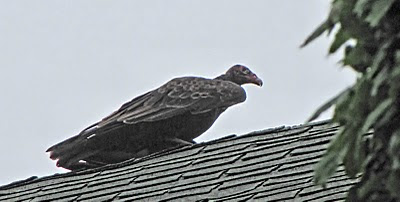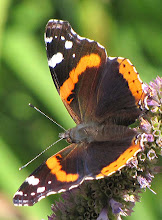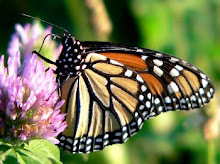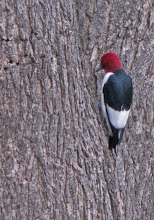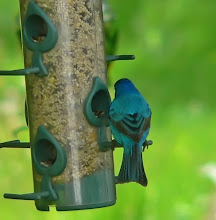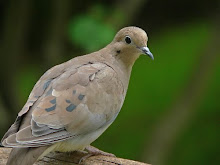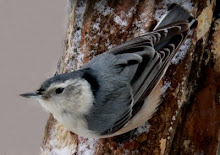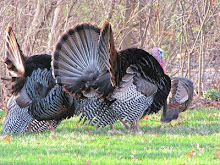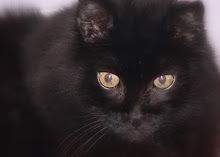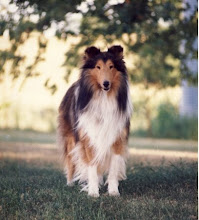I spent a rather Edgar Allan Poe-esque Saturday gardening with a vulture. Even for a lover of birds, gardening while a turkey vulture sits above and watches you is a little creepy. As he sat on my barn roof looking at me, lines from Poe's poem 'The Raven' kept running thru my head.
`Prophet!' said I, `thing of evil! - prophet still, if bird or devil! - Whether tempter sent, or whether tempest tossed thee here ashore...
Apart from the ugly head--which does look like a turkey's, I think they're very handsome birds. Their wingspan is six feet or more. I often see them gliding over the house and fields and they look magnificent. I believe they nest nearby, probably in an outbuilding or barn loft.
After eating, vultures rest in the sun. My new friend must have just dined because he sat there on the barn roof, shaking his head. This is to rid his face of pieces of his lunch which contain bacteria. The sun's heat helps kill the bacteria. I could hear a large flock (or do they call it a murder?) of crows in the field so there must have been a dead animal there and the smaller crows were finishing what the vultures had left.
Things I learned about vultures: Vultures are not buzzards. Buzzards are European birds related to the hawk family. Vultures are new world birds related to storks and ibises. They don't kill their food, they eat only dead things they find with their excellent sense of smell. They cannot carry their food away and must eat it where ever it was found. In addition to meat, they will eat pumpkins and other vegetables.
Turkey vultures are masters of the air. They can glide for six hours without ever flapping their wings. They venture out as the day warms, quickly finding pockets of rising warm air, or thermals. Once they find a thermal they are uplifted and circle finding other rising warm air currents to sweep them across the skies at speeds of up to 60 mph. What a truly great engineering accomplishment this bird is. Nature never makes mistakes.
Later in the day a small blackbird, probably a redwing came and attempted to drive the vulture off. I think the vulture was willing to make an exception and eat this live pest but the blackbird was too quick. When the vulture finally flew away, I could see the blackbird pecking at his back and head.

From vultures to roses. Bloggers don't have to follow the 'rules' other writers are bound by. We can veer off course and combine any number of odd things in one post.
My English roses are blooming now. These are elegant roses having the look and often the scent of the old heirloom roses. The advantage of these modern Austin English varieties is that they bloom all season and not just once in the spring.

